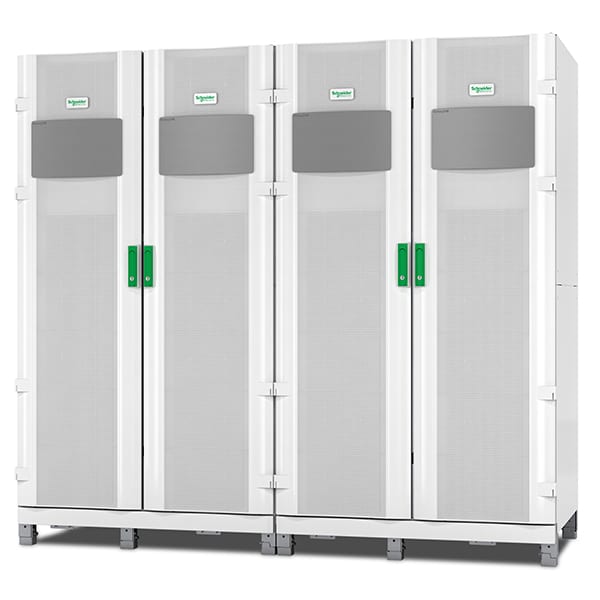
Above: Schneider Electric’s Galaxy VM 3 Phase UPS system. Image courtesy Schneider Electric.
Schneider Electric, a global specialist in energy management and automation, announced that it will support the use of lithium-ion (Li-ion) batteries as an alternative to Valve Regulated Sealed Lead-Acid (VRLA) batteries for many of its three-phase uninterruptible power supplies (UPSs).
Schneider Electric is helping customers address some of the key challenges they face with using UPSs including:
- As a result, they take up only about one-third the space (or less) of a comparable VRLA-based solution that delivers the same power. This helps customers increase the footprint available for IT equipment while also reducing cooling requirements, which saves both capital costs and ongoing operating costs.
- Extending UPS battery life and reducing maintenance overhead: Lithium’s long design life greatly reduces the cost and maintenance burdens of performing battery replacements.
“While VRLAs remain the dominant UPS energy storage technology due to their low cost and high reliability, lithium-ion is becoming a more attractive option for a growing set of customers,” said Pedro Robredo, Vice President of Secure Power Systems, Schneider Electric. “While the initial cost remains higher than comparable VRLA, the price gap has reduced significantly in the last few years. Based on the application, Li-ion solutions can offer a projected Total Cost of Ownership savings from 10 percent to 40 percent over their design life.”
Lithium-ion battery options are available immediately for select projects supporting Symmetra MW, Galaxy 7000 and Galaxy VM with broad availability in the second half of 2016. Additional three-phase product line support will be rolled out through 2017.

